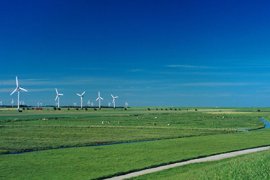Spatial assessment of environmental impacts of bioenergy production

This project aims to quantify impacts of increased bioenergy demand on carbon, biodiversity and water. Biomass for energy is expected to play an important role in reaching renewable energy targets and striving for a decarbonized energy system. The expected ongoing increase in the demand for bioenergy makes the sustainability of bioenergy production systems a key concern. The focus of this project lies on two case studies: wood pellet production in South-East United States and ethanol production in Brazil. Both case studies will use the PCRaster Land Use Change (PLUC) model developed at Utrecht University to create maps of expected changes in land use and management using scenarios of increased bioenergy demand. These maps are then used as input for impact assessments for carbon, biodiversity and water. The results of this study will be used to identify strategies to avoid negative impacts and optimize positive effects of bioenergy production.
The project is carried out by Anna Duden MSc. in collaboration with Dr. Pita Verweij, Dr. Floor van der Hilst and Dr. Judith Verstegen; and is funded by BE-Basic.



